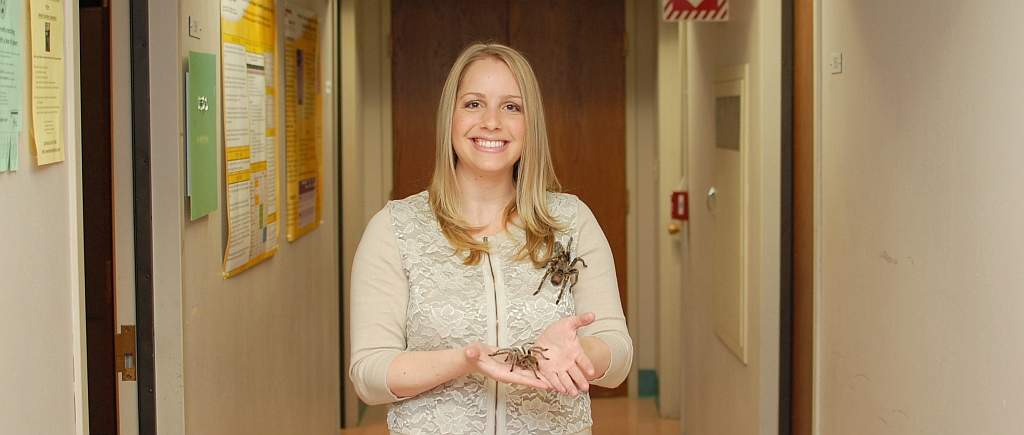Jen Turkel is currently working on her dissertation project that aims to investigate the role of attentional processes in exposure therapy. She is accomplishing this by combining a computer-based cognitive training program with a single session of in-vivo exposure therapy for individuals with a fear of spiders. The experiment includes computerized eye-tracking and reaction-time based tasks, physiological recording, self-report assessments, and behavioral approach and exposure tasks that involve live tarantulas (Coco and Bijou). 
This research is both theoretically and clinically significant considering the theories behind attention bias modification (ABM) and exposure therapy have contradictory positions on where attention should be allocated for maximizing the efficacy of the intervention. Findings from this study may provide insight into how attentional allocation patterns may affect the outcome of exposure therapy and potentially lead to improvements in this area. Additionally, the use of computerized cognitive training may address limitations of behavior therapy such as the potential for relapse and the challenge of undergoing the intensity of the exposure procedure.
